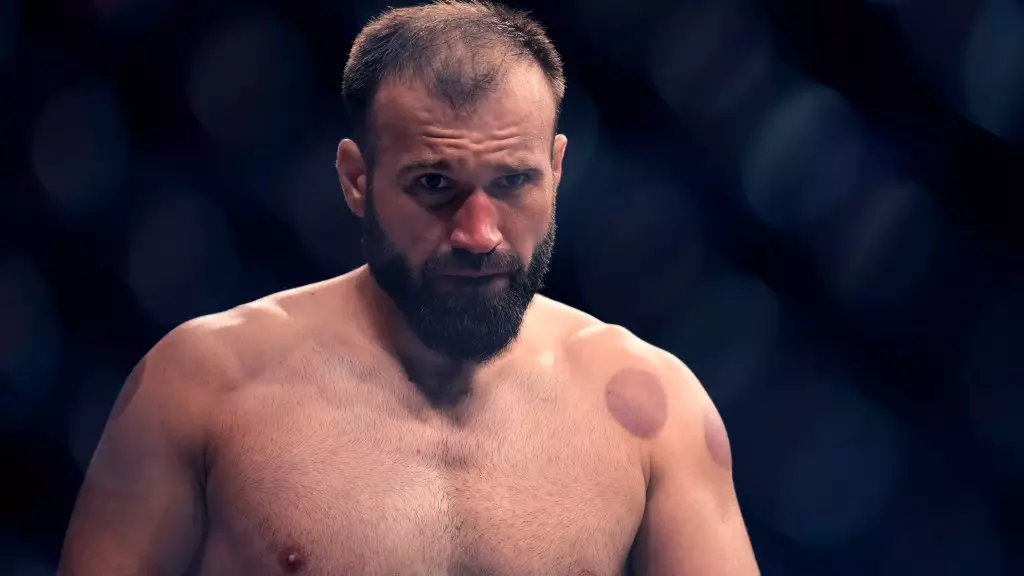The world of mixed martial arts (MMA) is no stranger to controversies surrounding doping violations, and the recent case of Azamat Murzakanov serves as yet another reminder of the complexities involved. Despite evidence suggesting that Murzakanov’s positive test was due to a contaminated supplement, he has accepted a six-month suspension from the UFC’s anti-doping program. This article delves into the circumstances surrounding his case, the implications for his career, and the broader issues of doping in combat sports.
Murzakanov, an unbeaten fighter with a record of 14-0, was scheduled to face Nikita Krylov at UFC 308. Unfortunately, prior to this event, he tested positive for a banned substance classified as LGD-4033, also known as a selective androgen receptor modulator (SARM). The substance was detected in an out-of-competition sample collected on October 8, 2024. The situation escalated when it was revealed that the banned substance had entered Murzakanov’s system through a dietary supplement he had used leading up to the fight, a detail that was absent from the supplement’s ingredient label.
This case illustrates the ongoing challenges fighters face regarding the purity and regulation of supplements. Athletes must navigate a landscape where even legitimate supplements can be tampered with or contaminated, leading to dire consequences for their careers.
Upon discovery of the positive test, the Combat Sports Anti-Doping (CSAD) conducted a thorough investigation. They identified a sealed bottle of the supplement Murzakanov had taken, which mirrored the presence of the banned substance in his sample. Laboratory testing revealed a low-level trace of LGD-4033, which, according to CSAD and the Sports Medicine and Research Testing Laboratory (SMRTL), would not confer any significant performance advantage.
Notably, a subsequent sample collected from Murzakanov on October 31, 2024, returned negative. This further corroborated his claims regarding the timeline of the contaminated supplement’s use, suggesting that he had indeed stopped its usage before the second sample was collected. However, the fact that Murzakanov had previously served a suspension under the UFC Anti-Doping Program complicated his situation; as a repeat offender, his penalty was significantly increased from 90 days to 180 days.
For Murzakanov, the suspension means he cannot compete until May 1, 2025, effectively sidelining him for a considerable portion of the year. This interruption comes at a time when he has gained momentum in his career, having emerged victorious against notable opponents such as Alonzo Menifield and Dustin Jacoby. With the UFC’s lightweight and middleweight divisions teeming with emerging talent, the implications of an extended absence from the octagon could have lasting effects on his trajectory as a fighter.
Moreover, the suspension raises questions about the fairness of the anti-doping system in handling cases that stem from contaminated supplements. While the UFC and CSAD aim to maintain the integrity of the sport, the current policies often do not differentiate adequately between intentional doping and unintentional ingestion through faulty supplements. This lack of distinction can unfairly penalize athletes who are diligently following the rules.
The Azamat Murzakanov case is emblematic of the broader issues associated with anti-doping regulations in mixed martial arts. While combating performance enhancement is necessary for the integrity of the sport, a more nuanced approach to such violations is warranted. As fighters continue to grapple with the implications of inadvertent doping, it is crucial for governing bodies to refine their policies to safeguard athletes’ rights while maintaining the sport’s integrity.
As Murzakanov prepares for his hiatus, encouraging transparency and education surrounding supplement use in MMA will be paramount. Moving forward, athletes need to be equipped with better knowledge and resources to avoid similar pitfalls, ensuring that their hard work and dedication are not undermined by external factors beyond their control.

